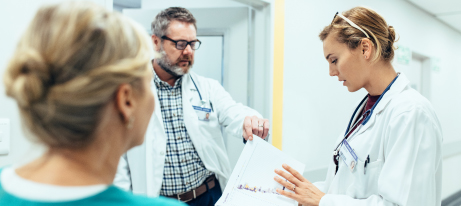
jacoblund / iStock
Clinical labs play a multifaceted role in combating the opioid epidemic. If toxicology testing is the most visible part, an equally important service labs perform involves consulting with physicians to make sure they understand the most effective testing algorithms. The latter contributes particularly to ensuring medication compliance and preventing diversion. With testing demands increasing across the scope of care, however, community and specialty hospital laboratories face a number of challenges in assessing opioids use. Opioids and Beyond: The Clinical Laboratory’s Role in the Opioid Epidemic (32220), a scientific session at the 71st AACC Annual Scientific Meeting & Clinical Lab Expo, will address these challenges, offering different perspectives and pathways to solutions.
The perspective of analytical toxicologists will come from session moderator Sara Love, PhD, a chemist with Hennepin Healthcare in Minneapolis, and Jennifer Colby, PhD, an assistant professor of pathology, microbiology, and immunology at Vanderbilt University Medical Center in Nashville, Tennessee. Sarah Wheeler, PhD, assistant professor of pathology at University of Pittsburgh Medical Center, will offer a clinical chemist’s point of view, and Ann Arens, MD, an emergency medicine physician at Hennepin, a clinician’s perspective. The speakers will follow up their talks with an interactive series of cases, using audience response technology.
With limited in-house screening tools, community hospitals often have to send out for confirmatory tests, Love and her co-presenters told CLN Stat. And, with new drugs entering the supply and use pipeline on a regular basis, another challenge is “antibody-based screening assays may not be able to robustly detect new analogues, delaying drug identification,” they indicated.
The speakers will jointly present case studies, starting with bedside clinical evaluations, moving on to chemistry and toxicology laboratories, and then back to patients with interventions, offering levels of detail appropriate for laboratorians, toxicologists, and clinicians. Basic opioid testing, fentanyl analogs, drug look-alikes, and pediatric opioid diversion are some of the cases they plan to cover. Topics include the caveats of fentanyl testing, public health perspectives, testing algorithms, and specialty testing methodologies.
Audience members in polls will be asked how they perform opioid testing and case interpretations at their own institutions. “This session will be educational, interactive, and we suspect a lot of fun if our planning calls to date are any indicator,” the speakers told CLN Stat.
Attend this August 5 scientific session at the 71st AACC Annual Scientific Meeting & Clinical Lab Expo in Anaheim, California, and earn 2 ACCENT credit hours. The session will take place from 2:15 p.m. to 4:15 p.m.